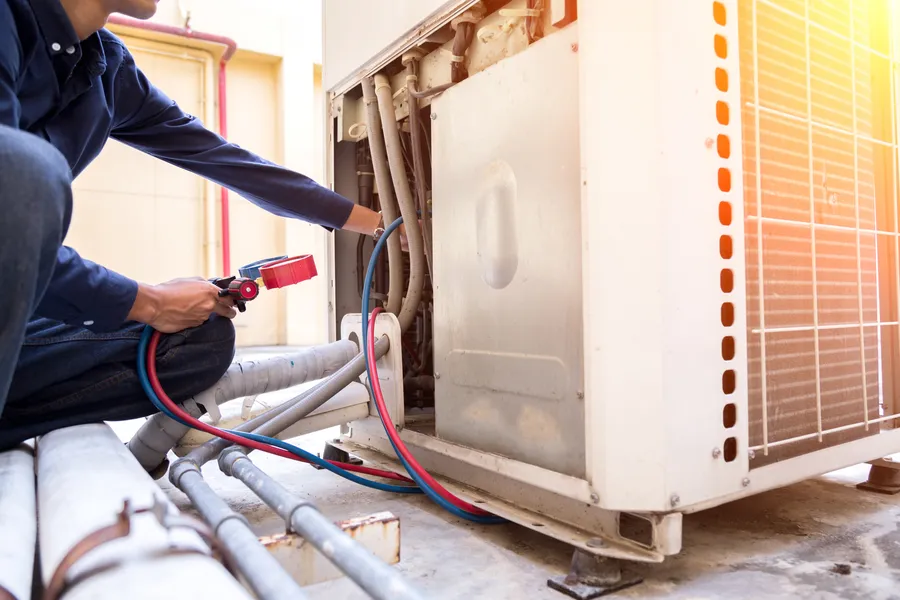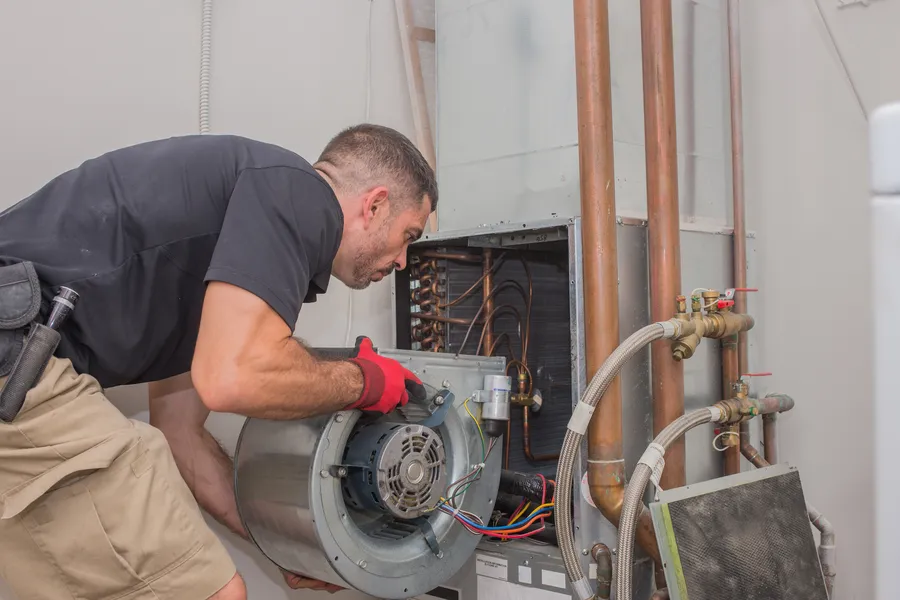Understanding the Impact of Heating and Cooling Systems on Energy Use
Your home’s heating and cooling system plays a big role in its energy consumption. When you decide to install or upgrade your HVAC system, it can make a significant difference in how much energy your home uses. This is not just about keeping your home comfortable; it’s also about saving money on energy bills and being more environmentally friendly. In this article, we’ll explore the different ways that installing an HVAC system can change your home’s energy usage.

The Importance of Proper System Sizing
One key factor in energy efficiency is choosing the right-sized system for your home. If your HVAC installation involves a system that’s too large, it can lead to increased energy use and higher bills because it will cycle on and off frequently. On the other hand, a system that’s too small won’t efficiently heat or cool your home, leading to constant running and energy waste. It’s essential to get professional advice to ensure your new system fits your home perfectly.
Installation Methods and Their Effects
The way your HVAC installation is done can significantly affect energy consumption. A poorly sealed ductwork system can leak air, causing your system to work harder and use more energy. Ensuring that ducts are properly sealed and insulated during installation helps maintain efficient airflow and reduces energy loss. Professional installation methods ensure that every component works at its best, contributing to overall energy savings.

Energy-Efficient Components
Modern HVAC systems come with various components designed to enhance energy efficiency. These include variable speed motors, smart thermostats, and improved insulation materials. Each component plays a role in reducing energy use by optimizing how your system operates. For example, a smart thermostat learns your schedule and adjusts temperatures automatically, minimizing unnecessary energy consumption when you’re not at home.
The Role of Regular Maintenance
Maintaining your HVAC system regularly is crucial for keeping energy consumption low. Without maintenance, even the most efficient systems can lose their edge over time. Simple tasks such as changing filters, cleaning coils, and checking for leaks can prolong the system’s life and keep it running efficiently. Here are some maintenance tips:
- Replace air filters every 1-3 months
- Schedule annual professional check-ups
- Keep outdoor units clear of debris
- Inspect ductwork for any visible leaks
The Financial Benefits of Reduced Energy Use
A well-installed and maintained system doesn’t just save energy; it saves money too. Lowering your home’s energy consumption means lower utility bills each month. Over time, these savings can offset the initial cost of purchasing and installing a high-efficiency system. Furthermore, many governments offer rebates or tax incentives for homeowners who invest in energy-saving home improvements, making it financially beneficial to choose an energy-efficient HVAC system.
Environmental Impact Considerations
Choosing an efficient HVAC system is also better for the environment. By using less energy, you reduce your home’s carbon footprint. This means you’re helping decrease the demand on power plants that burn fossil fuels, which are major sources of greenhouse gas emissions. Opting for greener choices in heating and cooling technologies contributes positively towards global efforts in combating climate change.
Take Action for Energy Efficiency Today
Understanding how HVAC installation affects your home’s energy consumption allows you to make informed decisions that benefit both your wallet and the planet. Investing in a modern, efficient system paired with regular maintenance can yield significant savings and environmental benefits. Contact us at Sean's Air Heating and Air Conditioning to discuss options suited for your needs. Serving clients in Redlands, CA, our expert team ensures quality service every step of the way. Call (909) 363-9693 now to start enhancing your home’s comfort and efficiency.
